I guess my ex and I fell on our feet with getting our kids through Broxbourne school, though I’m told its results have declined since it took up Academy status. Nevertheless Lindsey was happy there and achieved great things before going off to Bristol university. Adam seems to be doing pretty well are to be living up to expectations. As state schools this is undoubtedly a pretty good one with plenty of opportunities – as you would expect in an affluent middle-class area in the Home Counties.
You’d have said the same of the school I attended too, a boys’ Grammar School in a well-heeled corner of Cheshire. In fact I didn’t enjoy it and performed well below my capabilities. Apart from my particular problems at that time I do remember finding it very fixed, formal and didactic. As I learned more about alternative skills-based learning styles the more I understood that in subjects like history “facts” were often subject to multiple interpretations and that motives triangulated from multiple sources of available evidence were what counted and what made the subject come alive – yet it was usually taught as a chronological and linear narrative without scope to challenge the view quoted, nor to see from other perspectives.
History is written by the winners? Gove’s first attempt at rewriting the history syllabus would suggest he wanted to rewrite history in his own image, though thankfully intense opposition from every source made some changes inevitable – though in my opinion, nothing like enough (see here and here.) Curriculum should be objective and global in reach, certainly not focusing on the narrow views of “British values” viewed solely by a small-minded secretary of state.
More to the point, the ideal of education is relevant – and we all have them. Mine is that state education should provide equal opportunities for all to strive for excellence in any field, to engage in activities and visit places to further those skills, to access top quality tuition at their school and elsewhere, to find outlets for their enthusiasms, to engage with other students and teachers in ways beyond the curriculum in developing personal skills, and to come out of the process with skills, qualifications and a desire to go on learning and developing their vocation.
Citizenship? Yes if it doesn’t attempt to predispose kids into believing there is only one acceptable path through society. Remember that the purpose of education is to enable and empower students to flourish in their lives and careers, but also to learn to love study every bit as much as to develop a career path. After all, children develop at different rates and in different directions, so education should find ways to adapt to suit their tailored needs rather than herding people through a single process. We should be celebrating diversity, mutual respect and tolerance, but also equipping students to make their own decisions based on the evidence. That truly is a life skill: learning is lifelong.
My other provisos are also fairly straightforward. Private schools are inevitable but get results by cherry-picking the best from aspiration backgrounds and by hurling resources at the students. I’d sooner that best practice and optimal resources were available to all, regardless of background, rather than using schools as a tool of privilege and social exclusivity – and treating anyone from a local comp as a second class citizen is not the way. My sister overcame the handicap of “failing” 11 plus exams, then being allocated the local “secondary modern” school. She now works in a very senior role in education but succeeded in spite of, not because of her education. The divisive nature of the system classified her from the start as a second class citizen, which she overcame purely through her own efforts. The handicap of being regarded as lowly status should never again happen to anyone. Any school should have the ability to inspire any student to a bright future.
Secondly, I’ve never thought exams were the best way to measure learning, though under our current education secretary they seem to be back in favour. By all means have rigour in the learning process but judging students by a series of test results under very artifices conditions. That is not to say there is no value in exams, but the fact is that those with good exam technique will often do better than those with the greater knowledge or skills, by virtue of the mechanism and pressure. The best way of handling exams came to me late – during my MBA in fact, in my early 40s. The Henley method was to some extent “open book”: they would distribute in advance a case study, allow students to discuss within their groups, make notes and bring these into the exam. Students would then be given the questions and have 3 hours to use their accumulated wisdom to answer. The final exam saw two sessions on the same day, one to read the case study and take notes from books, the other to answer questions. Not appropriate for every subject but a far better test of analytical skills and mental agility.
Thirdly, I believe schools should be secular and not subject to undue influence from those with any agenda. That is, I don’t support religious schools or “free schools” managed by those with a desire to focus on a particular brand of curriculum or with an ethos to promote values or beliefs in other than an objective and balanced way, and if it is the parents who wish their children to be brainwashed to their own belief set, so much the worse. It’s my place as parent to make sure my kids have opportunities to flourish, to be happy, healthy and find a vocation for a productive life. It is not my role to push them into anything contrary to their nature, desires or interests – and neither should the school system either. Those who want a blinkered view to be taught should pay for that privilege, though my view is that it represents child cruelty.
The fact that core curriculum is no longer required to be taught at academies and free schools, nor teachers necessarily to be qualified, exemplifies these issues:
- If it is deemed essential for the students in state schools, then it should be compulsory for students at every school in the country. Why should other institutions be excepted from that essential professional kite mark for learning, if it is so important?
- If you don’t employ teachers trained to communicate effectively, manage their classes or obtain results, what can you expect? Employ subject matter experts and they may well not be able to articulate what needs to be known – and we’ve all had that problem when we were at school. Expertise, sure, but also learn how to plan lessons effectively and ensure students experience true learning.
Fourth, discipline and streaming. Yes discipline is a requirement for respectful learning. Punishing bad behaviour is one thing but command-and-control teaching another. A healthy degree of mutual engagement and interaction is the sign of a good lesson, though my memory of many teachers was of stifling debate and discussion – or excluding those who were not deemed worthy, but if some are having trouble keeping up or participating there is a problem.
Time was that streaming into groups based on ability was the norm. In view of what I’ve said about inclusivity and diversity the ideal would be not to discriminate on grounds of ability either, but in reality the most capable are held back by a lowest common denominator approach and the least able are more likely to switch off or be disruptive. The daughter of a friend was having this problem recently, apparently due to the school earning more credits for bringing all students up to 5 C-grade GCSEs than for the most able students being rewarded with top grades.
Mixed ability classes mean the least able students ask the most able to explain and therefore improve the most; the most able are not stretched and therefore suffer. But unlike selective schools, students have the ability to work hard and progress upwards in the streaming system and therefore demonstrate improvement, which is the primary purpose of the education system. Was excellence not the primary motivation of Michael Gove? Because if so, his department seems to be deliberately incentivising schools to handicap the best students in order to get median results higher. Is this really the best way to set an upward attainment trend? Clearly not.
Now all this is merely context to the strange things going on in education under the policy direction of Mr Gove, a minister in whom I have no confidence whatever. You may have read about his robust exchange with Theresa May on the subject of clamping down on extremism in schools, whereby he is using the supposedly independent and fearless OFSTED to do his dirty work by placing into special measures apparently high-performing schools in the Birmingham area where, allegedly, hard-line Muslims had staged infiltration of school governor panels, intimidated and dismissed heads, appointed new ones to implement measures such as segregation of classes and teaching “un-British” topics, in line with a claimed hoax letter suggesting how this could be done. I say “allegedly” since the academies in question have robustly refuted the allegations and threatened legal action in response to the OFSTED report.
From my perspective I have no way of knowing who, if anyone, is telling the truth in this saga, but the real victims are the children of the academies in question. My view is simple: I no more support the politicisation of the education process from Muslim groups for their reasons than I do by Mr Gove and colleagues for theirs. That he was elected by his own constituents is undeniable but as Education secretary his changes have no popular mandate, and do more harm than good to those in whose futures he is entrusted. A minister whose idea of curriculum is coloured by a rosy-tinted past and not equipping kids with the real world skills they need to thrive has no place in government or anywhere.
Talking of OFSTED, it would be a great shame if its role as an independent arbiter and upholder of standards of excellence in schools without fear or favour should be subverted for political purposes. It has obtained a bad press lately for shoddy inspections, particularly the “lightening” variety now practice as the norm. In this case we may not know the full story, but it certainly looks as if the inspectorate were given clear instructions to find evidence of wrongdoing and take action at the direct behest of Gove, whose attitude to extremism is known to be pre-emptive.
It looks as if they were pre-armed with some information and reported that, without the benefit of a fully investigation to determine what had been going on behind the scenes, but reported it anyway. If so, the ethos of the organisation has been corrupted and it must be replaced by a body at arm’s length from politicians, all the better to maintain a rigorous and ethical approach to maintaining the best and improving the worst aspects of education in this country.
If I’d change anything now, it would be to stop once and for all using the future of our young people as a political future and focus on what really matters: giving everyone the same opportunity to learn and to grow from the experience, whatever their background, whatever their skills, whatever their ambitions. And if they have handicaps in life that prevent them from finding or using their skills and talents, find ways in which they can. Give every child that opportunity and give it equally, wherever in the country they may be – and to find what inspires them to love learning and not cause disciplinary issues.
Nobody with a wealthier or more advantaged background should be better educated than the poorest child from an inner-city slum, because the scope of the education system should know no limits and not be governed by the resources thrown at crackpot experiments and minority groups. Remember that there is much, much more to learning than passing exams. It is preparation for life.


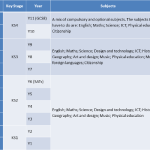
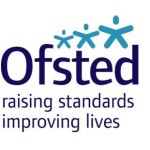
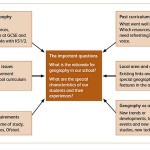




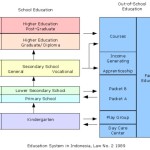

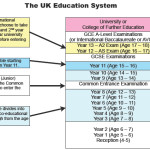
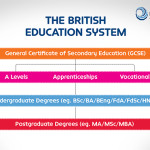







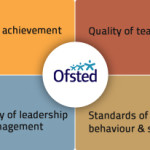

In the peak of ultimate boredom, I decided to trawl through some of your stupid thoughts on this ‘website’… ‘Living up to expectations..?’ Cheers m8..